Strictly Personal
Uganda can survive without its fuel coming via Mombasa, but… By Joachim Buwembo
Published
4 months agoon
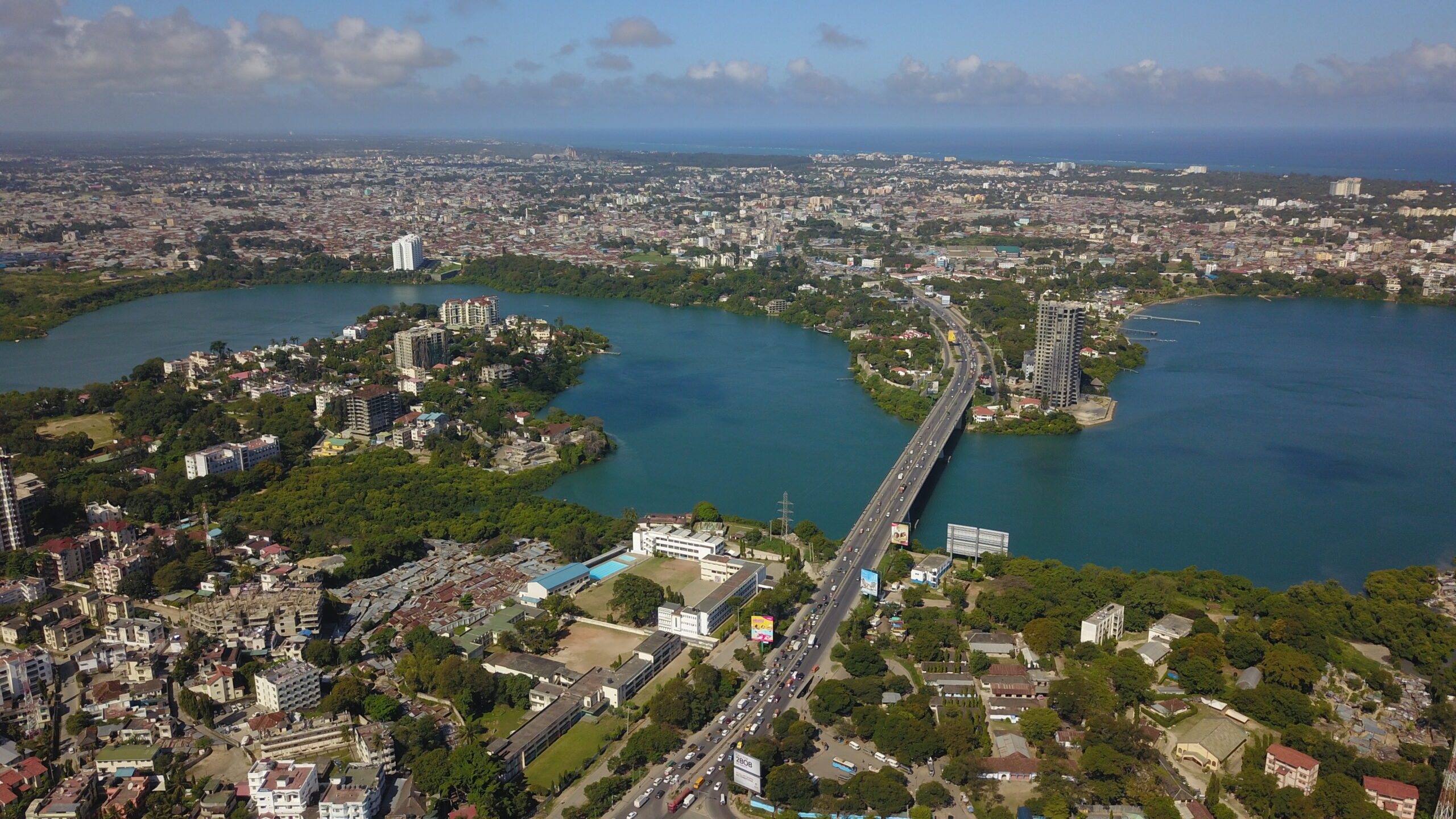
Much of the just-ended year has seen Uganda seemingly itching to take on any provocation from the biggest powers on earth like the US, which has been piling pressure on the country following the passing of some legislation over gay activities.
So, it wasn’t surprising when Uganda recently ran to the regional court over the Kenya Energy and Petroleum Regulatory Authority denying it a licence to import fuel through Mombasa and use the pipeline to transport it.
In the past, Kenya and Uganda have resolved more serious disputes without either side rushing to a court of law. But even if the court were to quickly grant Uganda’s prayer, Nairobi may still use administrative delays to block its operationalisation.
So, what are Uganda’s options?
Kampala must be preparing for the eventuality of losing the case, or it could even be secretly hoping to lose, and then be justified and compelled to test and grow its ability to live without accessing the sea through Kenya.
Since the two countries nearly went to war in December 1987 over similar issues, Kampala has maintained a policy of using Dar es Salaam for a portion of its essential imports, however unprofitably and even at a loss, just in case things go wrong with Nairobi.
Kenya’s 2007 post-election violence that disrupted Uganda’s trade proved the value of the lesson learnt exactly 20 years earlier.
Another 16 years down the line, Kampala seems to be readying for another dose of Kenyan problems to help Uganda further reduce its reliance on the somehow unpredictable Kenya gateway to the world.
But can Uganda survive without its fuel being imported through Kenya?
Survive it can, but at what cost? Uganda reportedly imports 10 percent of its fuel through Tanzania’s Dar es Salaam port and 90 percent through Kenya. If in the short run it manages to double the amount passing through Tanzania – more than that may require a major upgrade of Dar’s capacity, which is not an overnight undertaking.
Can Uganda survive the drastic 80 percent fall in its fuel supply? It may actually be easier to tell off the mighty US than Kenya, whose hostility may be felt more painfully by the Ugandan public.
It gets even more complicated when you consider that Kampala’s immediate viable option to access the world if things go wrong with Nairobi is by air, an option that requires aviation fuel, whose steady supply comes through Kenya!
To that add the fact that Uganda’s population has got so reliant on petrol, which powers its one million boda boda bikes, two million cars, some 10,000 commuter minibuses, and on diesel for cargo truck haulage.
Besides, Uganda is not Tanzania – which has started to electrify its railway system. The few electric buses Uganda has so far manufactured and put on the road cannot even move a hundredth of the country’s internally travelling population.
So, surviving in the event of not reaching an understanding with Kenya would require a major public mindset change to drastically cut down on motor transport, like it happened during the Covid lockdown.
But the grounding of vehicles during lockdown came when “non-essential” movement was prohibited. General grounding of non-essential vehicles today would lead to an economic crisis and actual contraction of the economy. It could also cause a social crisis that the country of now softened or “spoilt” citizens cannot afford (moreover with only two years to the general election).
All this means we are more likely to end up with nothing changing after the impending hot-and-cold blowing in court. So, a business-as-usual outcome could be expected when the legal fight over Uganda’s right to access the sea is done.
Buwembo is a Kampala-based journalist. E-mail:buwembo@gmail.com
You may like
-
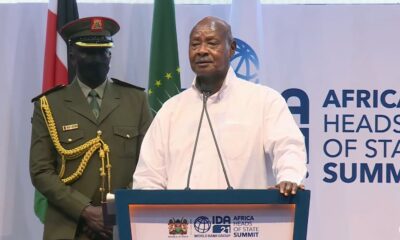

Video: Uganda’s Museveni urges African leaders to verify true motives behind IMF, W’Bank loans
-


Kenya: President Ruto assured of fresh IMF disbursement
-


RepAir, Cella partner to launch carbon capture in Kenya
-


IMF predicts Kenya’s economy to overtake Angola
-


Kenya’s Peres Jepchirchir fulfils promise of breaking world record at London Marathon
-


Investors’ wealth drops by $968 million on Nairobi Securities Exchange
Strictly Personal
This Sudan war is too senseless; time we ended it, By Tee Ngugi
Published
5 days agoon
April 28, 2024
Why are the Sudanese Armed Forces (SAF) and the paramilitary Rapid Support Forces (RPF) engaged in a vicious struggle? It is not that they have ideological, religious or cultural differences.
Not that people should fight because of these kinds of differences, but we live in a world where social constructions often lead to war and genocide. It is not that either side is fighting to protect democracy. Both sides were instruments of the rapacious dictatorship of Omar el-Bashir, who was overthrown in 2019.
Both are linked to the massacres in Darfur during Bashir’s rule that led to his indictment by the International Criminal Court for crimes against humanity. They both stood by as ordinary, unarmed people took to the streets and forced the removal of the Bashir regime.
None of these entities now fighting to the last Sudanese citizen has any moral authority or constitutional legitimacy to claim power. They both should have been disbanded or fundamentally reformed after the ouster of Bashir.
The SAF and the RSF are fighting to take over power and resources and continue the repression and plunder of the regime they had supported for so long. And, as you can see from news broadcasts, they are both well-versed in violence and plunder.
Since the fighting began in 2023, both sides have been accused of massacres that have left more than 30,000 people dead. Their fighting has displaced close to 10 million people. Their scramble for power has created Sudan’s worst hunger crisis in decades. Millions of refugees have fled into Chad, Ethiopia and South Sudan.
The three countries are dubious places of refuge. Chad is a poor country because of misrule. It also experiences jihadist violence. Ethiopia is still simmering with tensions after a deadly inter-ethnic war.
And South Sudan has never recovered from a deadly ethnic competition for power and resources. African refugees fleeing to countries from which refugees recently fled or continue to flee sums up Africa’s unending crisis of governance.
Africa will continue to suffer these kinds of power struggles, state failure and breakdown of constitutional order until we take strengthening and depersonalising our institutions as a life and death issue. These institutions anchor constitutional order and democratic process.
Strong independent institutions would ensure the continuity of the constitutional order after the president leaves office. As it is, presidents systematically weaken institutions by putting sycophants and incompetent morons in charge. Thus when he leaves office by way of death, ouster or retirement, there is institutional collapse leading to chaos, power struggles and violence. The African Union pretends crises such as the one in Sudan are unfortunate abnormally. However, they are systemic and predictable. Corrupt dictatorships end in chaos and violence.
Tee Ngugi is a Nairobi-based political commentator.
Strictly Personal
Air Peace, capitalism and national interest, By Dakuku Peterside
Published
2 weeks agoon
April 16, 2024
Nigerian corporate influence and that of the West continue to collide. The rationale is straightforward: whereas corporate activity in Europe and America is part of their larger local and foreign policy engagement, privately owned enterprises in Nigeria or commercial interests are not part of Nigeria’s foreign policy ecosystem, neither is there a strong culture of government support for privately owned enterprises’ expansion locally and internationally.
The relationship between Nigerian businesses and foreign policy is important to the national interest. When backing domestic Nigerian companies to compete on a worldwide scale, the government should see it as a lever to drive foreign policy, and national strategic interest, promote trade, enhance national security considerations, and minimize distortion in the domestic market as the foreign airlines were doing, boost GDP, create employment opportunities, and optimize corporate returns for the firms.
Admitted nations do not always interfere directly in their companies’ business and commercial dealings, and there are always exceptions. I can cite two areas of exception: military sales by companies because of their strategic implications and are, therefore, part of foreign and diplomatic policy and processes. The second is where the products or routes of a company have implications for foreign policy. Air Peace falls into the second category in the Lagos – London route.
Two events demonstrate an emerging trend that, if not checked, will disincentivize Nigerian firms from competing in the global marketplace. There are other notable examples, but I am using these two examples because they are very recent and ongoing, and they are typological representations of the need for Nigerian government backing and support for local companies that are playing in a very competitive international market dominated by big foreign companies whose governments are using all forms of foreign policies and diplomacy to support and sustain.
The first is Air Peace. It is the only Nigerian-owned aviation company playing globally and checkmating the dominance of foreign airlines. The most recent advance is the commencement of flights on the Lagos – London route. In Nigeria, foreign airlines are well-established and accustomed to a lack of rivalry, yet a free-market economy depends on the existence of competition. Nigeria has significantly larger airline profits per passenger than other comparable African nations. Insufficient competition has resulted in high ticket costs and poor service quality. It is precisely this jinx that Air Peace is attempting to break.
On March 30, 2024, Air Peace reciprocated the lopsided Bilateral Air Service Agreement, BASA, between Nigeria and the United Kingdom when the local airline began direct flight operations from Lagos to Gatwick Airport in London. This elicited several reactions from foreign airlines backed by their various sovereigns because of their strategic interest. A critical response is the commencement of a price war. Before the Air Peace entry, the price of international flight tickets on the Lagos-London route had soared to as much as N3.5 million for the economy ticket. However, after Air Peace introduced a return economy class ticket priced at N1.2 million, foreign carriers like British Airways, Virgin Atlantic, and Qatar Airways reduced their fares significantly to remain competitive.
In a price war, there is little the government can do. In an open-market competitive situation such as this, our government must not act in a manner that suggests it is antagonistic to foreign players and competitors. There must be an appearance of a level playing field. However, government owes Air Peace protection against foreign competitors backed by their home governments. This is in the overall interest of the Nigerian consumer of goods and services. Competition history in the airspace works where the Consumer Protection Authority in the host country is active. This is almost absent in Nigeria and it is a reason why foreign airlines have been arbitrary in pricing their tickets. Nigerian consumers are often at the mercy of these foreign firms who lack any vista of patriotism and are more inclined to protect the national interest of their governments and countries.
It would not be too much to expect Nigerian companies playing globally to benefit from the protection of the Nigerian government to limit influence peddling by foreign-owned companies. The success of Air Peace should enable a more competitive and sustainable market, allowing domestic players to grow their network and propel Nigeria to the forefront of international aviation.
The second is Proforce, a Nigerian-owned military hardware manufacturing firm active in Rwanda, Chad, Mali, Ghana, Niger, Burkina Faso, and South Sudan. Despite the growing capacity of Proforce in military hardware manufacturing, Nigeria entered two lopsided arrangements with two UAE firms to supply military equipment worth billions of dollars , respectively. Both deals are backed by the UAE government but executed by UAE firms.
These deals on a more extensive web are not unconnected with UAE’s national strategic interest. In pursuit of its strategic national interest, India is pushing Indian firms to supply military equipment to Nigeria. The Nigerian defence equipment market has seen weaker indigenous competitors driven out due to the combination of local manufacturers’ lack of competitive capacity and government patronage of Asian, European, and US firms in the defence equipment manufacturing sector. This is a misnomer and needs to be corrected.
Not only should our government be the primary customer of this firm if its products meet international standards, but it should also support and protect it from the harsh competitive realities of a challenging but strategic market directly linked to our national military procurement ecosystem. The ability to produce military hardware locally is significant to our defence strategy.
This firm and similar companies playing in this strategic defence area must be considered strategic and have a considerable place in Nigeria’s foreign policy calculations. Protecting Nigeria’s interests is the primary reason for our engagement in global diplomacy. The government must deliberately balance national interest with capacity and competence in military hardware purchases. It will not be too much to ask these foreign firms to partner with local companies so we can embed the technology transfer advantages.
Our government must create an environment that enables our local companies to compete globally and ply their trades in various countries. It should be part of the government’s overall economic, strategic growth agenda to identify areas or sectors in which Nigerian companies have a competitive advantage, especially in the sub-region and across Africa and support the companies in these sectors to advance and grow to dominate in the African region with a view to competing globally. Government support in the form of incentives such as competitive grants ,tax credit for consumers ,low-interest capital, patronage, G2G business, operational support, and diplomatic lobbying, amongst others, will alter the competitive landscape. Governments and key government agencies in the west retain the services of lobbying firms in pursuit of its strategic interest.
Nigerian firms’ competitiveness on a global scale can only be enhanced by the support of the Nigerian government. Foreign policy interests should be a key driver of Nigerian trade agreements. How does the Nigerian government support private companies to grow and compete globally? Is it intentionally mapping out growth areas and creating opportunities for Nigerian firms to maximize their potential? Is the government at the domestic level removing bottlenecks and impediments to private company growth, allowing a level playing field for these companies to compete with international companies?
Why is the government patronising foreign firms against local firms if their products are of similar value? Why are Nigerian consumers left to the hands of international companies in some sectors without the government actively supporting the growth of local firms to compete in those sectors? These questions merit honest answers. Nigerian national interest must be the driving factor for our foreign policies, which must cover the private sector, just as is the case with most developed countries. The new global capitalism is not a product of accident or chance; the government has choreographed and shaped it by using foreign policies to support and protect local firms competing globally. Nigeria must learn to do the same to build a strong economy with more jobs.
EDITOR’S PICK


Egypt unveils stamp to mark 100th anniversary of relationship with Brazil
The Egyptian Post Board has unveiled a stamp to mark its 100th anniversary of relations with Brazil. The commemorative stamp...


ExxonMobil ‘optimistic’ over Mozambique LNG project
According to a company spokesman on Thursday, ExxonMobil is “optimistic and pushing forward” with its postponed Rovuma liquefied natural gas...


African Union, Google Africa launch campaign to celebrate creative economy
The African Union has entered a partnership with Google Africa aimed at celebrating the continent’s thriving creative economy which has...


Liverpool legend Graham Souness wants ‘selfish’ Salah to leave club
One of the legends of English Premier League club, Liverpool, Graeme Souness, wants Egyptian star, Mohamed Salah, to leave the...


São Tomé and Principe to demand reparations from Portugal
The education and cultural minister of Sao Tome and Principe, an African island nation, announced on Thursday that the government...
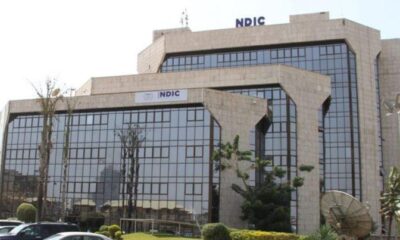

Nigeria’s Insurance Corporation raises maximum deposit coverage from N500k to N5m
The maximum deposit insurance coverage levels for Deposit Money Banks has been raised by the Nigeria Deposit Insurance Corporation (NDIC)...


Zambian activist highlights ongoing threats to media freedom on World Press Freedom Day
As the world commemorates World Press Freedom Day on Friday, a youth activist from the Young Women Christian Association (YWCA)...
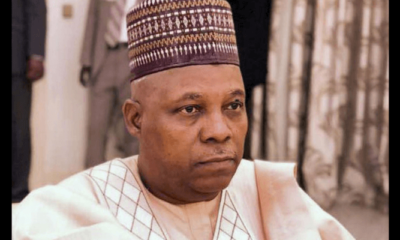

Nigeria’s economy will witness positive changes after painful sacrifice— VP Shettima
Nigeria’s Vice President, Senator Kashim Shettima, has told Nigerians to look at the bigger picture as the country’s economy will...


Nigeria’s food delivery startup Chowdeck raises $2.5m to optimise operations
Nigeria’s on-demand food delivery startup, Chowdeck, has announced securing the sum of $2.5 million in seed funding that will enable...


Ghanaians celebrate return of Asante Gold artefacts looted by British
Ghanaians, especially those from the ancient Asante region, have been in joyous mood as they flocked to the Manhyia Palace...
Trending
-

 Tech1 day ago
Tech1 day agoNigeria’s food delivery startup Chowdeck raises $2.5m to optimise operations
-
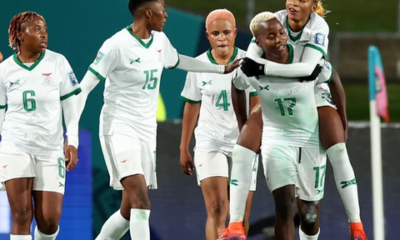
 Sports1 day ago
Sports1 day agoWhy Zambia’s women national team could miss Olympics
-

 VenturesNow2 days ago
VenturesNow2 days agoNigerian banks close over two million accounts
-

 VenturesNow15 hours ago
VenturesNow15 hours agoNigeria’s Insurance Corporation raises maximum deposit coverage from N500k to N5m


